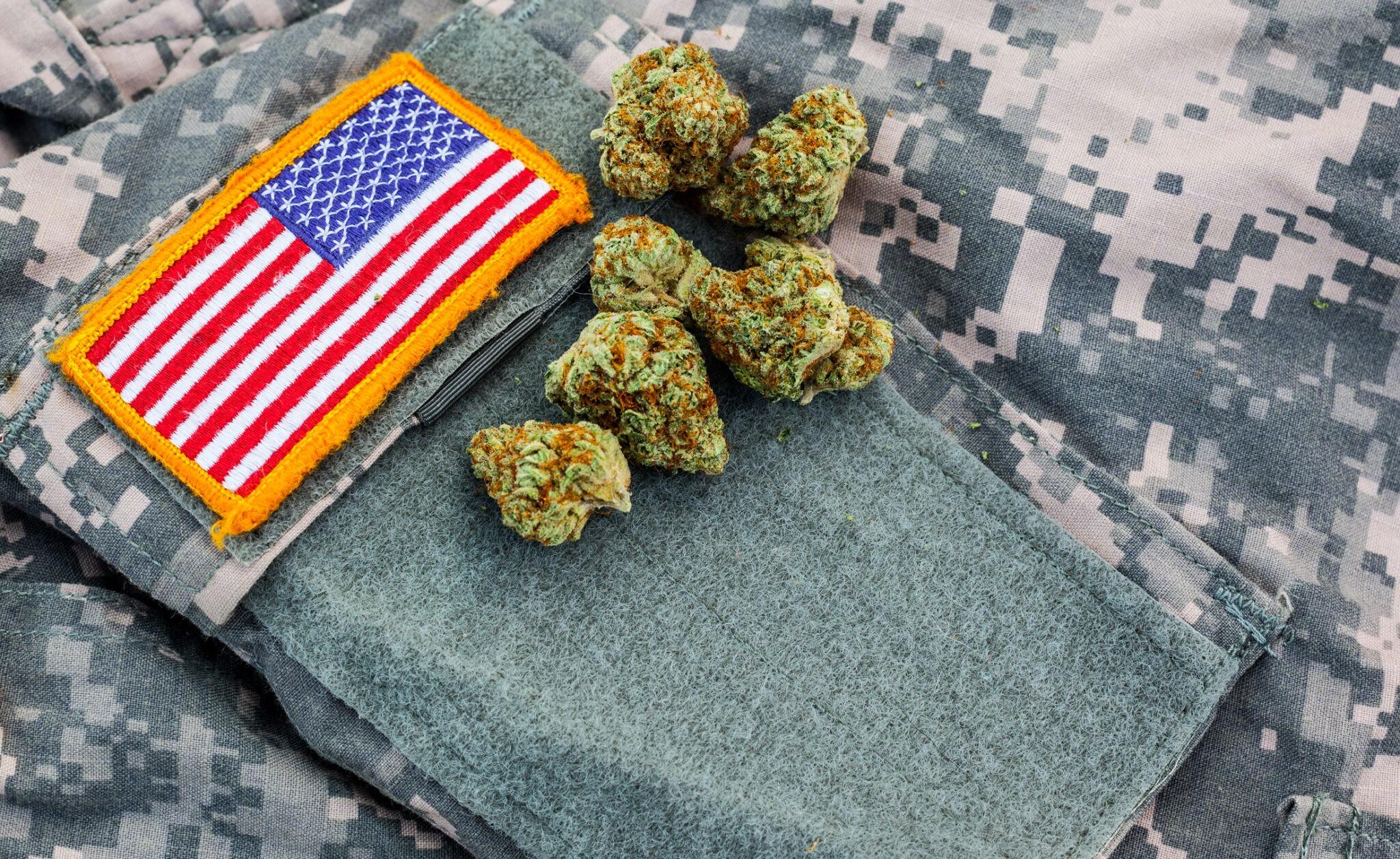As the nation honors Veterans Day, a growing number of advocates argue that the best way to honor America’s veterans is to provide them with broader access to cannabis.

(Photo credit: GETTY Images).
For years, veterans and advocacy groups have pushed for marijuana reform, pointing to cannabis’ potential to address conditions like post-traumatic stress disorder (PTSD), chronic pain, and anxiety—issues disproportionately affecting those who have served in the military. However, federal restrictions continue to complicate access to even medical marijuana, despite evidence and state-level policies increasingly support its therapeutic value.
Currently, veterans who seek relief through medical cannabis face a patchwork of laws depending on the state in which they live. Thirty-eight states and Washington, D.C. have legalized medical marijuana, and 24 states have legalized it recreationally. But the federal government still classifies marijuana as a Schedule I drug under the Controlled Substances Act, categorizing it as a substance with “no accepted medical use” and a high potential for abuse. This classification limits veterans’ access to cannabis through the Department of Veterans Affairs (VA), which cannot recommend or prescribe medical marijuana, even in states where it is legal. A process to move marijuana to Schedule III is currently underway, but its future is in question with a new administration incoming, and some argue a move to Schedule III wouldn’t do near enough to help veterans.
The lack of consistent access leaves veterans who depend on the VA for healthcare without viable alternatives to opioids and other pharmaceuticals, which often have significant side effects, unless they are willing to resort to the black market. Research has shown that veterans are more likely to experience opioid addiction and overdose than the general population, and are much more likely to commit suicide. Advocacy groups argue that cannabis could be a safer, more effective option for treating chronic pain and mental health disorders.
“Veterans deserve access to the full range of treatments, including medical marijuana,” said Erik Altieri, executive director of NORML. “They risked their lives for this country, and yet we deny them relief that millions of civilians are allowed to access legally. It’s past time to change that.”
The benefits of cannabis for PTSD and chronic pain continue to gain support from recent research. A 2024 study published in the Journal of Psychopharmacology reported that veterans using cannabis saw a significant reduction in PTSD symptoms compared to those relying solely on traditional medications. Another 2024 study, highlighted in Frontiers in Pain Research, found that cannabis was not only effective in managing chronic pain but also contributed to a 25% reduction in opioid use among veterans. Researchers believe these findings point to cannabis as a safer and potentially more effective alternative to opioids for veterans struggling with chronic pain and mental health conditions.
Advocates from groups like the Veterans Cannabis Project and Weed for Warriors say that legalizing marijuana nationwide would not only provide veterans with needed care but would also allow for more research into the plant’s benefits. Due to marijuana’s federal status, research on its medicinal applications is restricted, leaving critical gaps in our understanding of how best to use it in clinical settings. Nationwide legalization, they argue, would open the door to federally funded studies and offer clearer guidelines for safe and effective use.
There has been some progress in the US Congress. Acts like VA Medicinal Cannabis Research Act, introduced multiple times in Congress, would authorize the VA to study the effects of cannabis on PTSD and chronic pain, and measures like the MORE Act and CAOA would fully deschedule marijuana and have well over 100 combined sponsors. Although some of these measures have gained bipartisan support, they have remained stalled in their respective chambers, and hopes of their passage have been at least temporarily dashed with news that Republicans will be taking control of the Senate in January (although some Republicans support the VA Medicinal Cannabis Research Act, none are sponsoring either bill to deschedule marijuana).
Many veterans and their advocates believe the solution is simple: nationwide legalization. “If we truly cared about our veterans, we’d stop making them jump through hoops for something that could alleviate their suffering,” said Nick Etten, founder of the Veterans Cannabis Project. “Legalizing cannabis would give them back some control over their own health and their lives.”
As more states move toward legalization, public support for national cannabis reform continues to grow. A Gallup poll released this month found that 68% of likely U.S. voters support legalization, while a separate YouGov poll released around the same time reported nearly identical results with 69% support.
Although more marijuana proponents supported Kamala Harris than supported Donald Trump, leading up to the election Trump announced his support for Florida’s marijuana legalization initiative Amendment 3, while also declaring support for federally rescheduling marijuana and passing marijuana banking legislation, indicating that it may not be all doom and gloom for proponents of giving veterans wider and easier access to marijuana and marijuana medicine.






